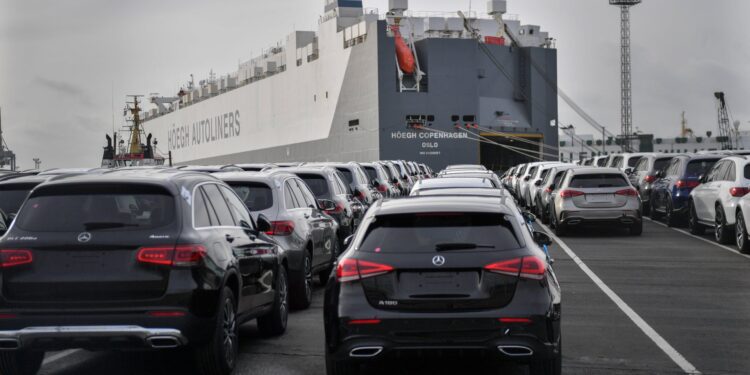As reported by CNBC, multiple issues have combined to create a perfect storm crowding the port. Bremerhaven is facing a lack of drivers to move shipments out of the port. The port is lacking enough truck drivers to haul away containers, as well as roll-on/roll-off drivers to disembark vehicles off of ships.
The high volumes of cars currently being sent through the port aren’t helping matters. A flood of vehicles from Stellantis, Tesla, BMW, Renault and Volvo are among others piling up at the facility. Space at the shipping terminal is also scarce right now, due to ongoing military exercises in certain areas.
A lack of ocean-going vehicle carriers is compounding the issue. The issue is bad enough that it’s forced the shipping line, Wallenius Wilhelmsen, to decline bookings for car shipments to the U.S. in October and November. December exports could be canceled as well if the situation doesn’t improve, according to maritime data analysis by VesselsValue.
The company estimates that the global car shipping fleet is 13 vessels short compared to December 2019, thanks largely to the scrapping of multiple vessels after the COVID-19 pandemic began in 2020. Others simply sank, adding to the problem. Those numbers aren’t expected to climb significantly until new vessels are delivered in 2024, says VesselsValue head of vehicle carriers, Dan Nash.
Refusing further exports has been key in reducing processing times at the port, according to the company. Waiting time for vehicle carriers has routinely exceeded 50 hours this year, peaking at 60 hours in September 2022. Traditionally, that waiting time has rarely exceeded 30 hours in previous years, according to VesselsValue data.
Logistics experts speaking to CNBC described the delays as “massive.” Car shipments destined for the U.S. and Mexico are reportedly being delayed not by weeks, but months. Outside of its car shipping operations, Bremerhaven is experiencing “moderate” congestion, according to data collected by CNBC.
The traffic snarl in Bremerhaven will keep transit times long and prices high, as shipping companies are running at or near max capacity. In time, reducing exports and bringing new ships online should clear the blockage. For now, though, cars traveling from Bremerhaven to the U.S. are going to take a little longer to arrive.
Got a tip? Let the author know: lewin@thedrive.com


